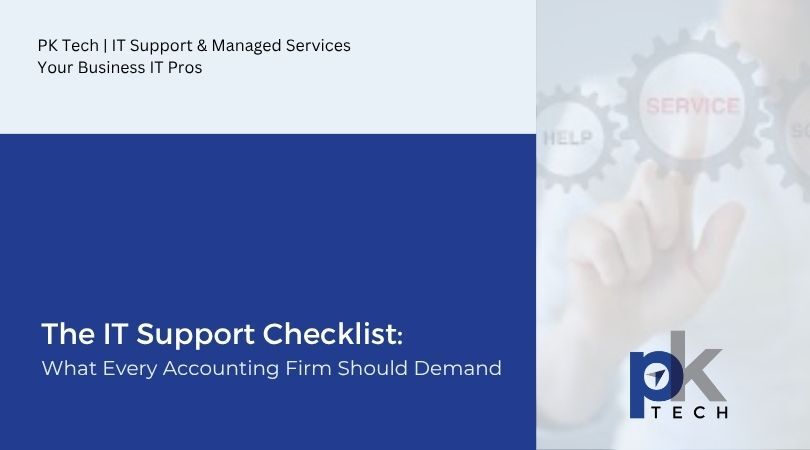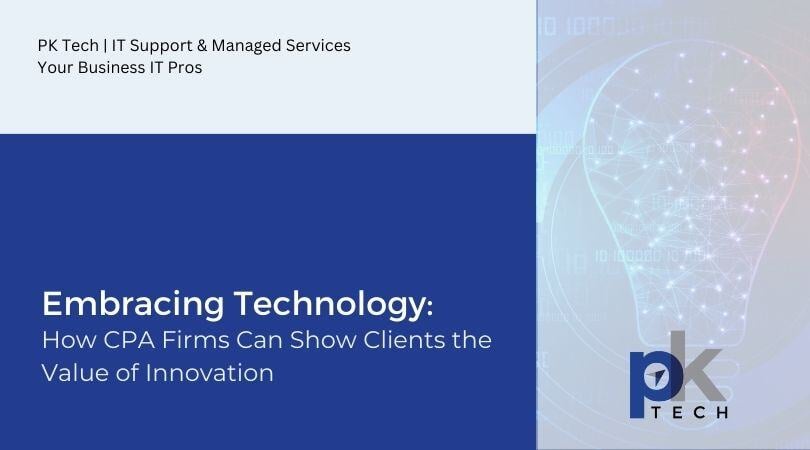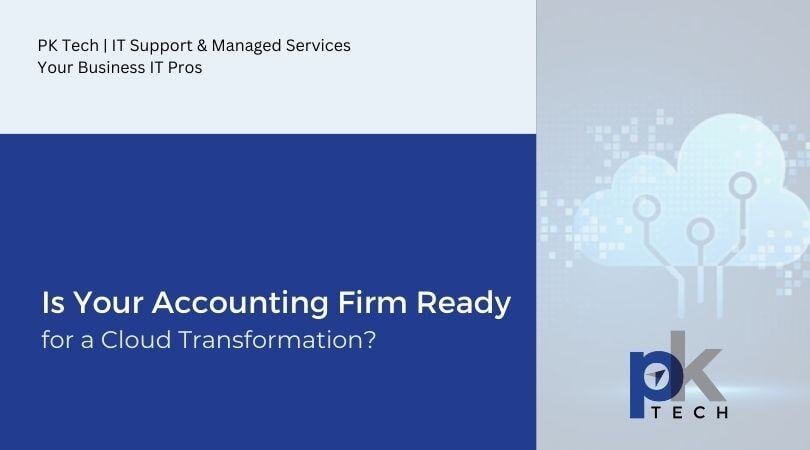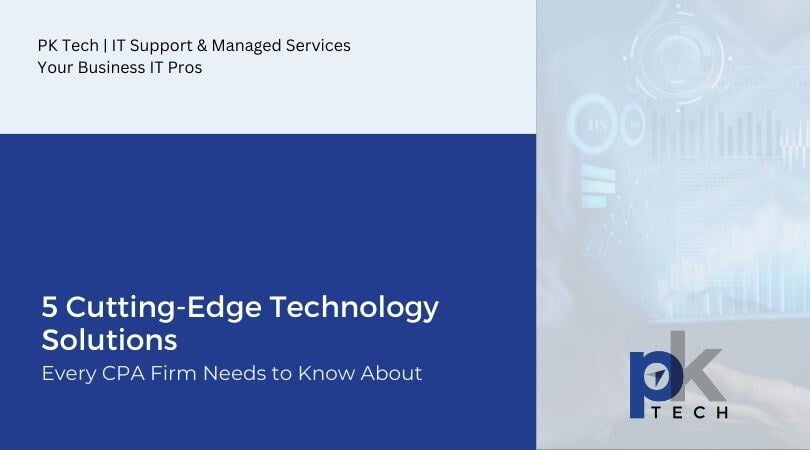The IT Support Checklist: What Every Accounting Firm Should Demand
We’re in the IT business, so we know what you should expect. This doesn’t mean that all managed IT service companies provide this, but some certainly...
Accountants–like it or not–are being forced to evolve beyond status quo number-crunchers. Firms are now expected to be a pinnacle of breakneck pace evolution and technological innovation. Businesses employing the top accounting firms are demanding more real-time insights, better automation, and enhanced security, forcing competitive firms to do their part to stay ahead of the curve.
The days of manual ledgers and spreadsheet-based workflows are fading, replaced by next-generation accounting technology solutions that can streamline processes, improve decision-making, and ensure compliance. Here’s a look at the five most innovative accounting technologies that every firm should be aware of and consider implementing.
Cloud accounting has revolutionized the way accounting firms manage financial data. Solutions like QuickBooks Online, Xero, and Sage Intacct have moved accounting to the cloud, enabling businesses to access their financial information from anywhere, at any time. This shift eliminates the need for expensive, on-premise software, and provides scalability for businesses of all sizes.
Why it matters:
By leveraging cloud accounting, firms can deliver faster and more accurate financial reporting and provide clients with a better, more streamlined experience.
AI and machine learning are transforming accounting processes by automating routine tasks, detecting anomalies, and providing predictive insights. AI-driven accounting software like Botkeeper and Vic.ai are already making waves by automating tasks such as transaction categorization, invoice processing, and reconciliations.
Why it matters:
AI and ML are not just a luxury anymore; they are rapidly becoming a necessity for firms that want to stay competitive.
Blockchain isn’t just for cryptocurrency anymore. Its decentralized ledger system has huge potential for improving transparency and reducing fraud in accounting. Auditchain and Blockchain for Finance are two platforms pushing the envelope in applying blockchain for accounting and auditing purposes.
Why it matters:
Blockchain has the potential to change the way financial records are maintained, offering unmatched levels of trust and integrity in accounting.
Robotic Process Automation (RPA) is transforming how accounting firms handle high-volume, repetitive tasks. Tools like UiPath and Automation Anywhere are using RPA to automate workflows such as data entry, report generation, and invoice processing.
Why it matters:
RPA is a game-changer for firms looking to scale their operations without increasing their headcount or compromising on quality.
The integration of data analytics and business intelligence (BI) tools in accounting is opening up new possibilities for firms to provide value-added services. Tools like Power BI, Tableau, and Qlik Sense are allowing accountants to go beyond basic financial reporting and offer deeper insights into business performance.
Why it matters:
BI tools are not just about reporting; they are about transforming data into actionable insights that drive strategic decisions.
The accounting profession is undergoing a massive transformation, driven by technological innovation. Firms that embrace these next-generation solutions — from cloud-based accounting and AI-driven automation to blockchain, RPA, and advanced data analytics — will not only streamline their operations but also provide greater value to their clients. As these technologies continue to evolve, firms that stay ahead of the curve will position themselves as industry leaders and gain a significant competitive advantage. Firms that do not will fall behind, and business will suffer as a result. There is only one clear path forward.
For accounting firms looking to thrive in the future, the time to adopt and implement these technologies is now. The future of accounting is here — and it’s digital, automated, and smarter than ever before.
Ready to implement? We’ve got the team (and the tools) to help you. As a managed IT service provider, PK Tech is proud to offer 15 years of experience with a focus on accounting firms. We boast AICPAs SOC 2 Type II attestation, proving via third-party audit by an independent CPA firm that we passed a rigorous and comprehensive assessment of our security and privacy controls. Schedule a time to chat with our team here.

We’re in the IT business, so we know what you should expect. This doesn’t mean that all managed IT service companies provide this, but some certainly...

Technology is here, and it’s here to stay. As a CPA firm, there is no need to shy away from technological innovation – in fact, it can be a way to...

The accounting world is no stranger to change. From evolving tax regulations to shifts in client expectations, staying competitive means staying...
